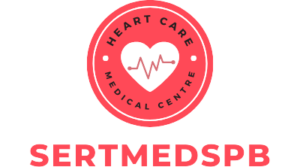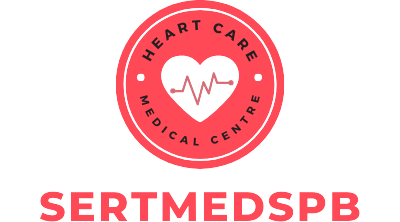In the world of fitness and bodybuilding, gaining muscle mass and increasing strength are two goals that many individuals strive to achieve. While regular strength training is crucial for building muscle, it is equally important to pay attention to one’s diet. Proper nutrition plays a vital role in supporting muscle growth and maximizing the results of strength training. This article aims to provide a comprehensive understanding of the importance of diet in muscle mass gain and strength training. It will delve into key components of an effective muscle-building diet and strength training routine, as well as address common challenges and provide solutions for optimizing muscle mass and strength through diet and training. So, if you are looking to take your physique and performance to the next level, read on to discover the secrets to achieving your goals through a well-balanced diet and targeted strength training.
1. "Understanding the Importance of Diet in Muscle Mass Gain and Strength Training"
Proper nutrition plays a vital role in achieving optimal results during muscle mass gain and strength training. Many individuals focus solely on their exercise routine, neglecting the importance of a well-balanced diet. However, without the right nutrients, it becomes extremely challenging to build muscle and enhance strength effectively.
When engaging in muscle mass gain and strength training, the body requires additional energy to fuel the intense workouts and support muscle growth. This energy primarily comes from the macronutrients: protein, carbohydrates, and fats. Each macronutrient serves a unique purpose in the muscle-building process.
Protein is often considered the cornerstone of muscle growth as it supplies the amino acids necessary for repairing and building new muscle tissue. Aim to consume high-quality protein sources such as lean meats, poultry, fish, eggs, dairy products, legumes, and plant-based alternatives like tofu and tempeh. Incorporating protein into each meal and snack throughout the day ensures a consistent supply of amino acids for muscle repair and growth.
Carbohydrates are the body’s preferred source of energy, especially during intense workouts. They provide the fuel necessary to push through challenging training sessions and support muscle recovery. Opt for complex carbohydrates like whole grains, fruits, and vegetables, as they provide sustained energy and essential vitamins and minerals.
While fats often have a bad reputation, they are crucial for hormone production and maintaining overall health. Healthy fats, such as those found in avocados, nuts, seeds, and fatty fish like salmon, provide essential fatty acids that aid in muscle recovery and reduce inflammation.
In addition to macronutrients, it is important to pay attention to micronutrients. Vitamins and minerals play a crucial role in muscle growth and recovery, as they are involved in various enzymatic reactions in the body. Adequate
2. "Key Components of an Effective Muscle-Building Diet and Strength Training Routine"
To effectively build muscle mass and enhance strength, it is crucial to have a well-rounded approach that combines a proper diet with a targeted strength training routine. The key components of an effective muscle-building diet and strength training routine can greatly impact the results you achieve. Let’s delve into these components:
1. Sufficient Protein Intake: Protein is the building block of muscles, and consuming an adequate amount is essential for muscle growth. Aim to include high-quality sources of protein in your diet such as lean meats, poultry, fish, eggs, dairy products, legumes, and plant-based proteins like tofu and quinoa. It is recommended to consume about 1.2-2 grams of protein per kilogram of body weight per day for muscle building purposes.
2. Caloric Surplus: To gain muscle mass, you need to consume more calories than your body burns. This surplus of calories provides the energy required for muscle growth. However, it is important to obtain these additional calories from nutrient-dense sources rather than relying on unhealthy, processed foods. Incorporate complex carbohydrates like whole grains, fruits, and vegetables, along with healthy fats from sources like nuts, avocados, and olive oil to meet your calorie needs.
3. Timing and Frequency of Meals: Distributing your calorie intake evenly throughout the day can optimize muscle growth. Aim to consume protein-rich meals every 3-4 hours to ensure a steady supply of amino acids for muscle repair and growth. Additionally, having a balanced meal with carbohydrates and protein within 1-2 hours before and after your strength training sessions can enhance muscle recovery and promote muscle protein synthesis.
4. Hydration: Staying properly hydrated is often overlooked but critical for muscle building and overall health. Water is involved in numerous physiological processes, including muscle function and
3. "Common Challenges and Solutions for Optimizing Muscle Mass and Strength through Diet and Training"
Common Challenges and Solutions for Optimizing Muscle Mass and Strength through Diet and Training
Achieving optimal muscle mass and strength can be a challenging journey for many individuals. It requires not only a dedicated training regimen but also a well-planned diet that supports muscle growth and recovery. However, there are several common challenges that individuals face when trying to optimize their muscle mass and strength through diet and training. In this section, we will explore these challenges and provide practical solutions to overcome them.
1. Inadequate Caloric Intake: One of the primary challenges individuals face when trying to build muscle mass is consuming enough calories to support the growth and repair of muscles. To overcome this challenge, it is crucial to calculate your daily caloric needs based on your goals and activity level. Ensure that you are consuming a surplus of calories, typically around 250-500 calories above your maintenance level, to provide your body with the necessary energy for muscle growth.
Solution: Keep track of your daily caloric intake using a food diary or mobile application. Include nutrient-dense foods such as lean proteins, whole grains, fruits, and vegetables to meet your calorie requirements.
2. Insufficient Protein Intake: Protein is an essential macronutrient for muscle growth and repair. Insufficient protein intake can hinder muscle development and impede strength gains. Many individuals struggle to consume an adequate amount of protein from their diet alone.
Solution: Include protein-rich foods in every meal and snack. Good sources of protein include lean meats, poultry, fish, eggs, dairy products, legumes, and plant-based protein sources such as tofu and tempeh. If necessary, consider adding protein supplements like whey protein powder to meet your daily protein needs.
3. Lack of Nutrient Timing: Timing your meals and snacks strategically can



